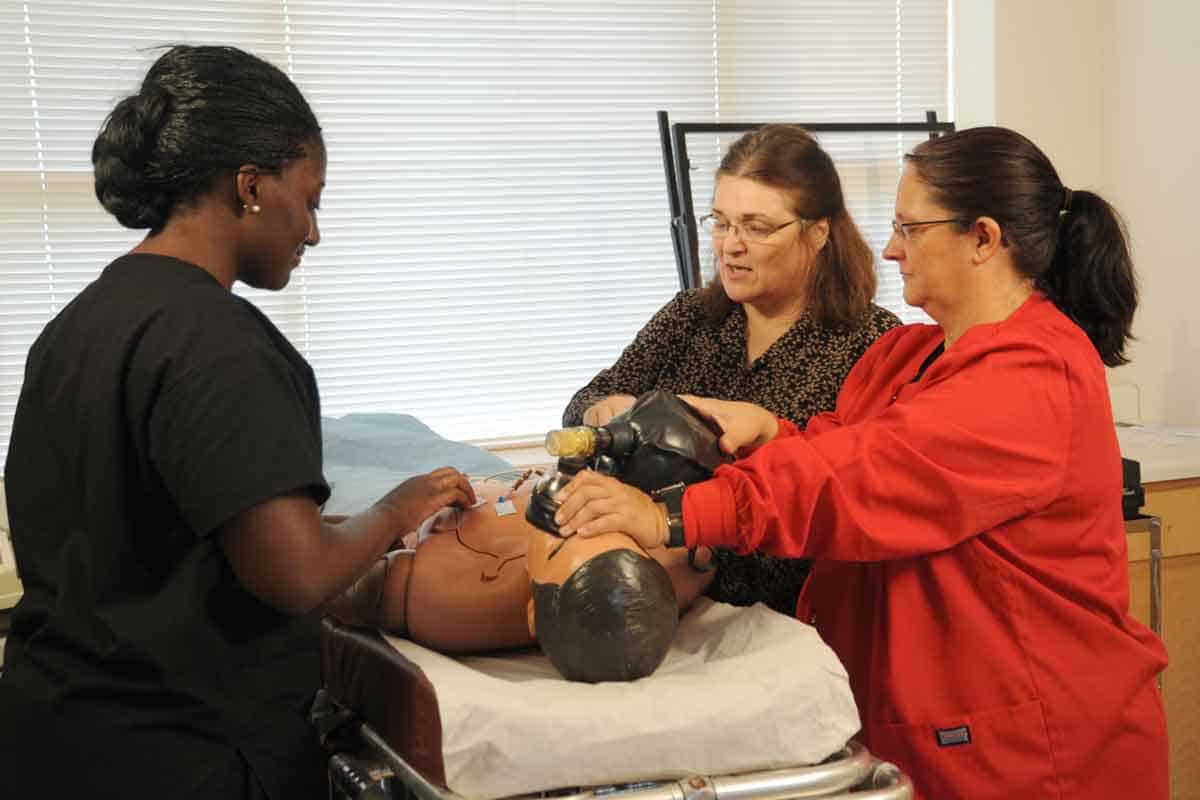| Course | Credit Hours |
|---|
| OCCUPATIONAL COURSES | |
ALHS 1011 Structure & Function of the Human Body Focuses on basic normal structure and function of the human body. Topics include general plan and function of the human body, integumentary system, skeletal system, muscular system, nervous and sensory systems, endocrine system, cardiovascular system, lymphatic system, respiratory system, digestive system, urinary system, and reproductive system.
Required textbooks and materials:
- Essentials of Medical Anatomy and Physiology, 7th ed., ISBN 978-0-8036-3957-7, $60.95
- Workbook to Accompany Essentials of Anatomy and Physiology, 7th ed., ISBN 978-0-8036-3958-4, $45.00
4310 | 5 |
ALHS 1090 Med Term/Allied Health Sciences Introduces the elements of medical terminology. Emphasis is placed on building familiarity with medical words through knowledge of roots, prefixes, and suffixes. Topics include: origins (roots, prefixes, and suffixes), word building, abbreviations and symbols, and terminology related to the human anatomy.
Required textbooks and materials:
- Medical Terminology: A Systems Approach, ISBN 978-0-8036-3575-3, $86.95
2267 | 2 |
ALHS 1040 Introduction to Health Care Introduces a grouping of fundamental principles, practices, and issues common in the health care profession. In addition to the essential skills, students explore various delivery systems and related issues. Topics include: basic life support/CPR, basic emergency care/first aid and triage, vital signs, infection control/blood and air-borne pathogens.
Required textbooks and materials:
- Clinical Procedures for Medical Assistants, ISBN 978-1455748341, $102.74
4311 | 3 |
COMP 1000 Introduction to Computer Literacy Introduces the fundamental concepts, terminology, and operations necessary to use computers. Emphasis is placed on basic functions and familiarity with computer use. Topics include an introduction to computer terminology, the Windows environment, Internet and email, word processing software, spreadsheet software, database software, and presentation software.
Required textbooks and materials:
- Guidelines for Microsoft Office, ISBN 978-0763867485, $128.72
2403 | 3 |
PHLT 1030 Introduction to Venipuncture Provides an introduction to blood collecting techniques and processing specimens. Emphasis is placed on the knowledge and skills needed to collect all types of blood samples from hospitalized patients. Topics include: venipuncture procedure, safety and quality assurance; isolation techniques, venipuncture problems, and definitions; lab test profiles and patient care areas; other specimen collections and specimen processing; test combinations, skin punctures and POCT; professional ethics and malpractice; and certification and licensure.
Required textbooks and materials:
2686 | 3 |
PHLT 1050 Clinical Practice Provides work experiences in a clinical setting. Emphasis is placed on enhancing skills in venipuncture techniques. Topics include: introduction to clinical policies and procedures and work ethics; routine collections: adult, pediatric, and newborn; and special procedures.
Required textbooks and materials (one-time purchase for all classes):
2687 | 5 |
ENGL 1010 Fundamentals of English I Emphasizes the development and improvement of written and oral communication abilities. Topics include analysis of writing, applied grammar and writing skills, editing and proofreading skills, research skills, and oral communication skills.
Required textbooks and materials:
- Business Communications Essentials: A Skills Approach to English, ISBN 978-0-13-253971-5, $156.47
2570 | 3 |
| *24 minimum semester hour credits required for certificate | |

